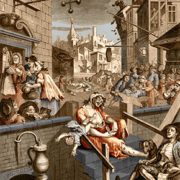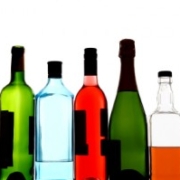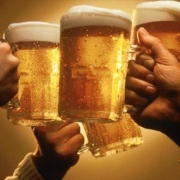Let’s not go back to Gin Lane – once again it’s time for government to rethink alcohol policy
 ‘History repeats itself.
‘History repeats itself.
Has to.
No-one listens’
It feels like déjà vu to once again see the headlines calling on the government to tackle alcohol related health problems. A study from the University of Sheffield shows that up to 68,000 people will die from alcohol related liver diseases in the next five years unless action is taken.
We were talking about the devastating impact of alcohol on the health of the nation eight years ago, and at regular intervals since then.
The solutions are not rocket science. Set alcohol prices at a minimum per unit (Minimum per-Unit Pricing or MUP), so that stronger drinks become more expensive. Better education around alcohol at school and in wider society – its health impacts, what constitutes safe consumption levels, etc. Public campaigns to make heavy drinking as socially unacceptable as drink driving.
We’ve been over this ground endlessly. Is anyone actually listening?
While the Scottish and Welsh governments seem to be on a path to bringing at least MUP into effect (not without major struggles with the drinks industry), successive Westminster administrations have fought shy. This in the face of mounting evidence that not only is alcohol a major social, public health and economic problem for the UK, but that MUP has a demonstrable positive impact in all these areas. Not least because it most influences that large majority of drinkers who think of themselves as moderate drinkers, but whose consumption is actually borderline heavy to excessive.
Actually, I’m underestimating how far this goes back. Hogarth’s famous engraving Gin Lane (above) depicts the social chaos in Georgian cities caused by access to cheap alcohol. Awful social and economic circumstances faced by the poor drove many to the gin houses to escape. The churches realised the damage, and the result was the various temperance movements, the beer brewing industries, and various social reforms that sought to mitigate both the cause of problem drinking and the access to cheap, strong spirits.
Once again the church needs to be at the vanguard. We are out there on the streets in city centres with groups like Street Pastors and Street Angels caring for those who have been out drinking heavily all night. The churches have been lobbying government for action for years as well. I think we have something positive to contribute in the areas of education and tackling the root social and (dare I say it!) spiritual causes of problem drinking as well. We certainly are in the wider area of substance abuse.
I fear that we will return to this issue, but today’s report from the University of Sheffield is another arrow in the quiver to influence government alcohol policy. But while we wait for government to engage, maybe it is time that the church re-engaged and broke this repetitive cycle once and for all.







Leave a Reply
Want to join the discussion?Feel free to contribute!